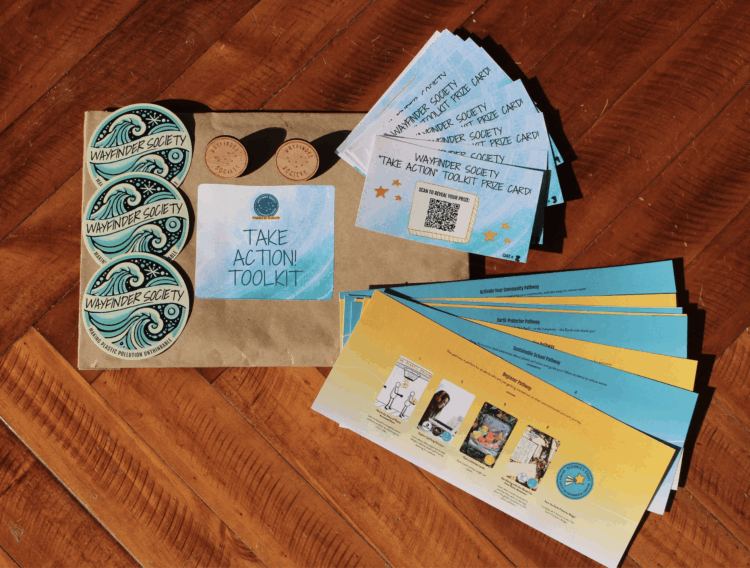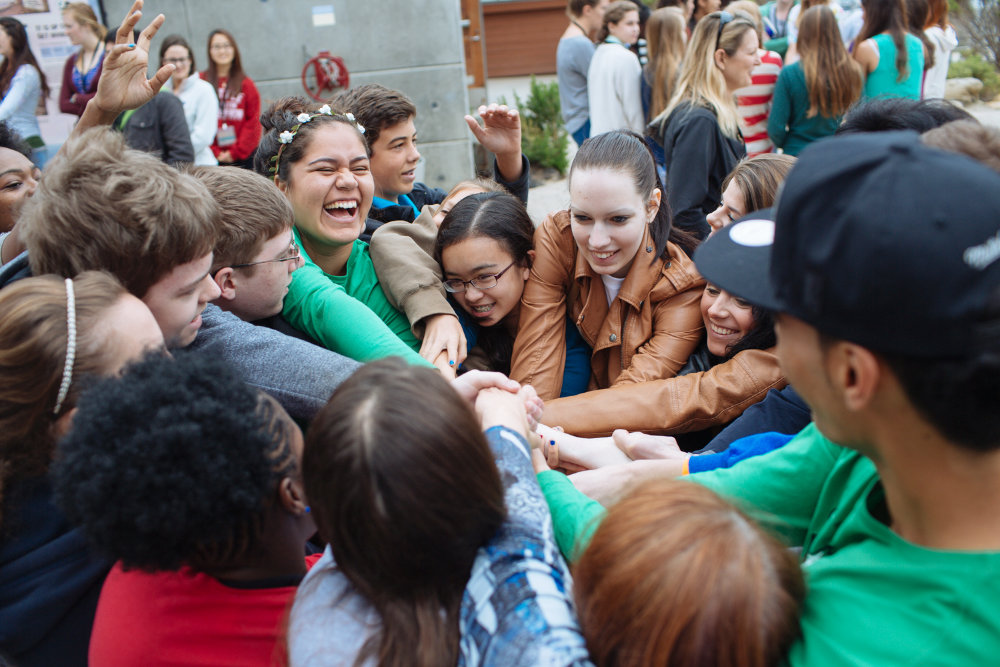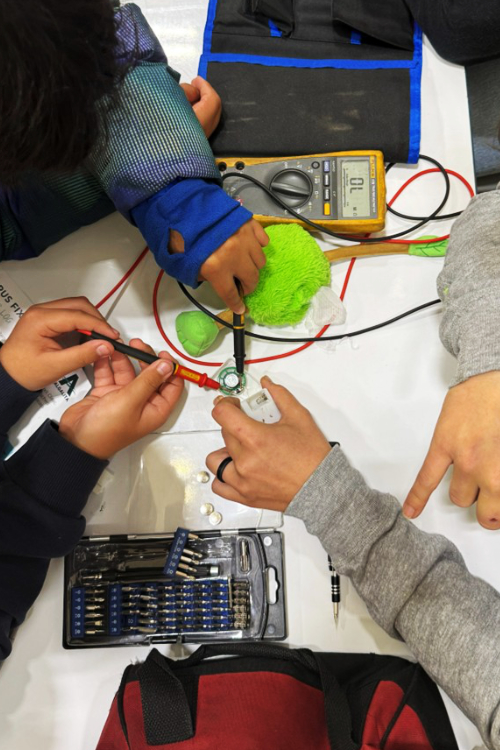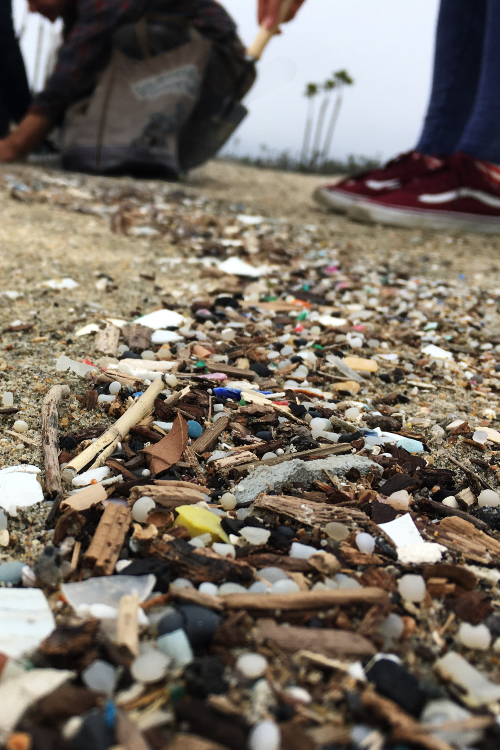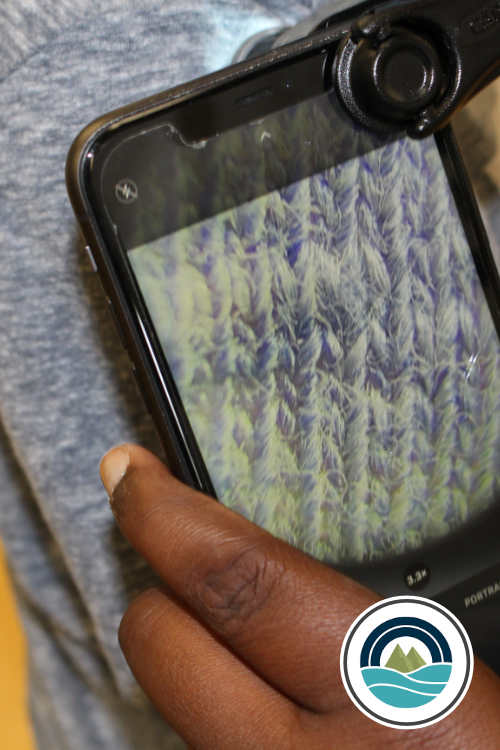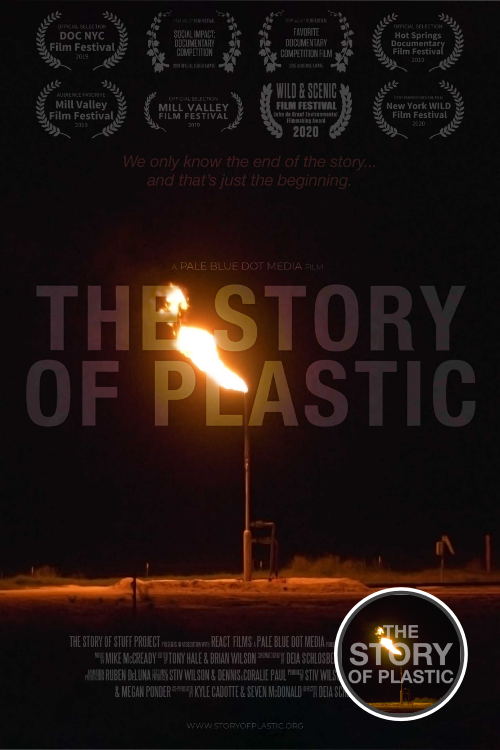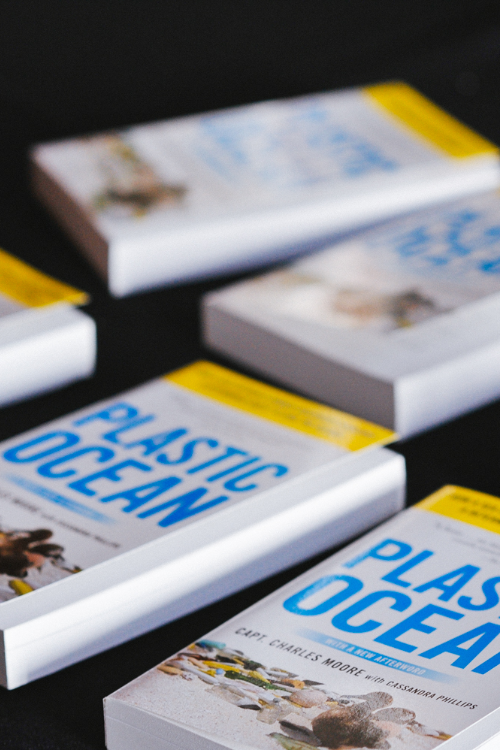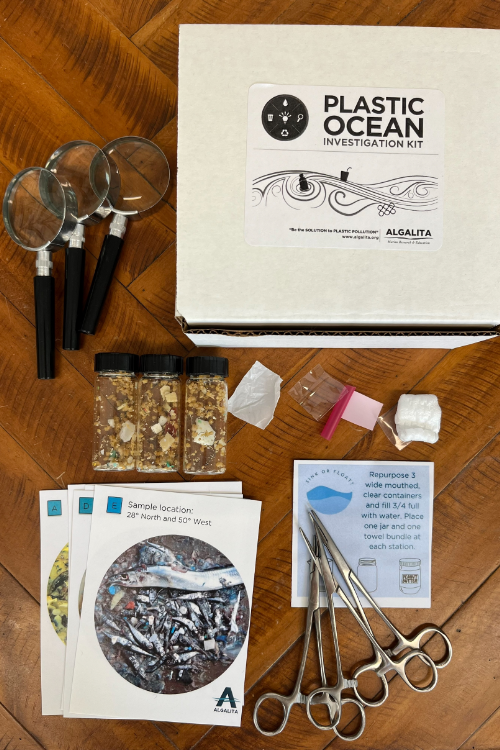Real-world, interactive environmental science labs.
All materials included.
Featured Toolkit:
Take Action! Toolkit
The Wayfinder Society TAKE ACTION! Toolkit is your go-to classroom companion for bringing the Student Hub to life! Designed to help educators integrate Wayfinder Actions into their lessons, this kit makes it easier than ever to connect student-driven environmental action with learning standards.
Inside, you’ll find Action Pathways cards—your roadmap to linking Wayfinder Actions with your curriculum—alongside exciting student rewards to keep motivation high. Prizes Include:
- 3 Wayfinder Stickers – Inspire students with these bold, ocean-inspired designs.
- 2 Wooden Pins – A badge of honor for taking action!
- 10 Prize Cards with QR Codes – Students can scan to win amazing rewards like reusables, school supplies, exclusive Wayfinder merch, extra Student Hub hours, mentor sessions, and even a certificate signed by Captain Charles Moore himself!
$50 value – Free for public school educators in USA
How to Host a Fixit Clinic At School Digital Toolkit
This digital toolkit will guide you through the steps to plan and facilitate a fix-it clinic at your school to help your school build community, save money, and keep stuff out of the landfills. Designed for educators, staff members, and school program coordinator this resource includes step-by-step instructions that walk you through each phase of hosting a Fixit Clinic, from early planning and logistics to day-of setup and facilitation. The toolkit includes planning checklists, role descriptions, student engagement tips, info to get the word out on campus, and reflection tools to help ensure a successful and meaningful repair event for everyone involved.
Any grade
Open ended timeframe
Free Downloadable Resource
Synthetic Sand Investigation Kit
Investigate beach sand for plastic contamination levels, and observe human impacts on coastal ecosystem health, using our microplastic-filled sand samples from Southern California. Each sample kit contains 4 sample jars and 4 magnifying glasses, plus an information card about the sample. Incorporate this lesson into your synthetic materials unit. Students use their senses and a clue sheet to distinguish synthetic debris from natural components in sand like shells, rocks, and plant matter. They then calculate the spatial density of microplastic pollution, and discuss their results.
Grades 5 and up
30 to 60 minutes
$30 value – Free for public school educators in USA
Microfibers Investigation Kit
Study microfiber air pollution in your classroom with clip-on microscopes. Microfiber pollution and exposure is still a new area of research within the field of plastic pollution. We want to better understand our exposure to airborne microfibers. Join us to study them with our Investigate Microfibers Lab. Compare indoor and outdoor deposition levels using clip-on microscopes and our simple sample collectors.
Co-created with Moore Institute for Plastic Pollution Research
Grades 6 and up
2 to 4 hours across 1 week
$60 value – Free for public school educators in USA
The Story of Plastic Documentary Digital Toolkit
This feature-length Emmy-winning documentary reveals the human side of the plastic problem. This film heroes front line communities around the world who are facing the impacts of plastic production and disposal. Use our free screening guide to navigate the complex themes of this documentary with your students. We’ve provided follow-up activities to discuss the main ideas, evaluate the documentary from a film-makers perspective, process emotional reactions, and take action in your classroom and community.
Co-created with The Story of Plastic
Grades 8 and up
2 hours plus
Free screening guide
Plastic Ocean Travelling Book Set Toolkit
Research, comprehend, discuss, and communicate about the problem of plastic pollution and solutions to this global challenge through a literary lens. Request to borrow our travelling class set of 40 copies of Plastic Ocean. Algalita’s keystone book is written by Cassandra Phillips and Founder Capt. Charles Moore who is credited with discovering the swirling soup of plastic in the North Pacific Ocean. Use three lessons created by educators to build off of the book.
Grades 9 and up
4-6 weeks
Free for public school educators in USA
Plastic Ocean Investigation Kit
Investigate the impacts of microplastics on our oceans with 3 rotating activities. The Plastic Ocean Investigation Kit (a.k.a. the Debris Science Investigation Kit) is an all-included, prepared activity for educators to use in the classroom. Students rotate through three hands-on activities, including studying microplastics in an ocean gyre sample, investigating the densities of various plastics and their effects on ecosystems, and mapping out where we find plastics in our oceans. Each activity includes a station card with background information, a student worksheet with investigation instructions, and 3 sets of materials for that station.
Grades 5 and up
50 minutes
$50 value – Free for public school educators in USA
TAKE ACTION! Kit
The Wayfinder Society TAKE ACTION! Toolkit is your go-to classroom companion for bringing the Student Hub to life! Designed to help educators integrate Wayfinder Actions into their lessons, this kit makes it easier than ever to connect student-driven environmental action with learning standards.
Inside, you’ll find Action Pathways cards—your roadmap to linking Wayfinder Actions with your curriculum—alongside exciting student rewards to keep motivation high. Prizes Include:
- 3 Wayfinder Stickers – Inspire students with these bold, ocean-inspired designs.
- 2 Wooden Pins – A badge of honor for taking action!
- 10 Prize Cards with QR Codes – Students can scan to win amazing rewards like reusables, school supplies, exclusive Wayfinder merch, extra Student Hub hours, mentor sessions, and even a certificate signed by Captain Charles Moore himself!
$50 value – Free for public school educators in USA
* Notice: We currently only ship to locations in the US.
Educator Testimonials
“I used the toolkits in conjunction with curriculum related to synthetic and natural materials. I also used the kits later in the curriculum when discussing human impact on the environment. The toolkits helped students engage in a hands on manner, which is different from other curriculum I’ve used for this unit. In addition, they connected to ideas related to proper stewardship of the environment which I was glad to include more of. I really appreciate how these kits are made and how they really are ready to use for teachers. These kits are some of the few kits that I can actually use without modification. I also appreciate how there is enough materials for 9-10 groups, which is what I need for my class sizes. I can tell that the kits are created to be used in a real classroom.”
~ Middle School Science Teacher, CA, 2025
“You have no idea…but you MADE MY DAY! I’ve been wanting environmental education materials like this for a long time now!”
– Ginneh Lewis, Science Educator at Alliance College-Ready Middle Academy, Los Angeles

